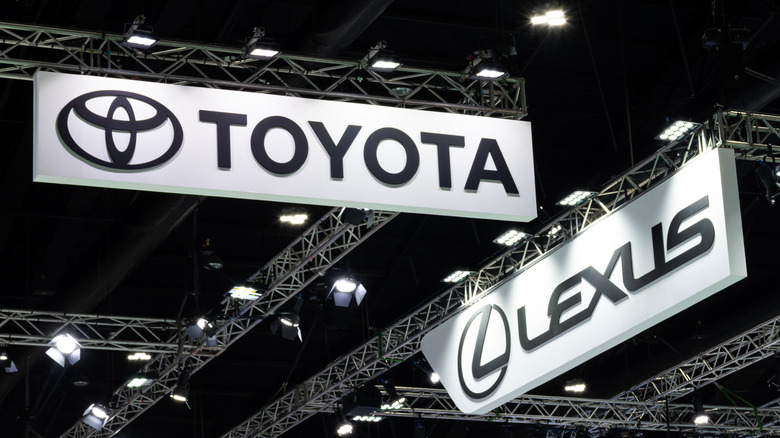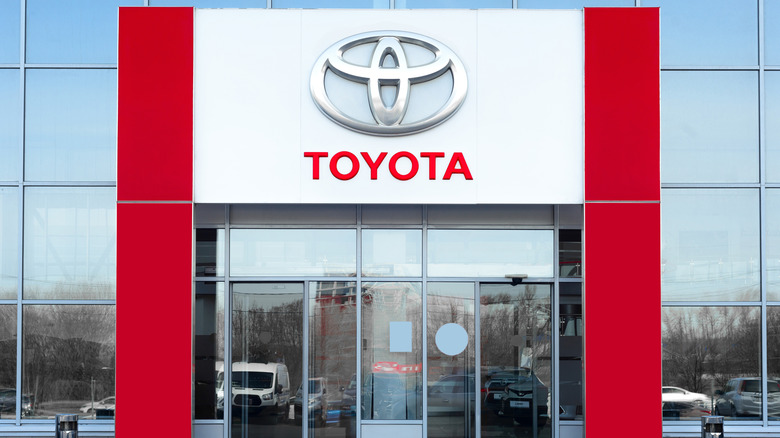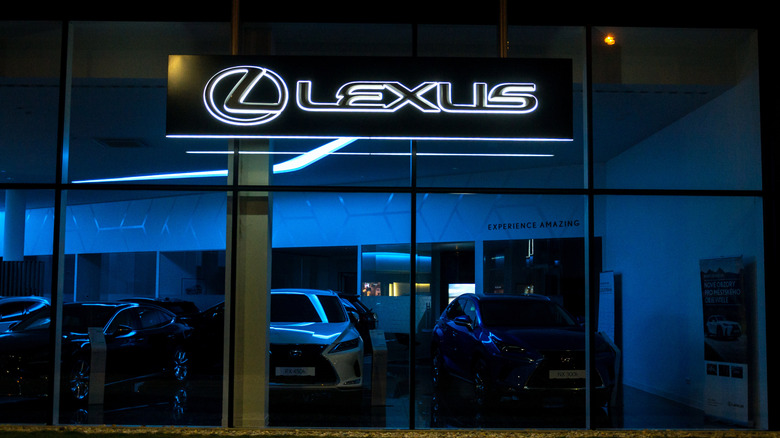Lexus Vs. Toyota: Which Brand Has The Lower Ownership Costs?
Although Toyota and Lexus are both praised for their legendary reliability, one fairly obviously comes out ahead in terms of total ownership cost. Value-oriented consumers turn to Toyota first for its reputation for well-priced maintenance and reliability. Sharing Toyota's DNA, Lexus presents itself as a premium choice with more opulent features and a higher starting price tag, but just as dependable. However, does paying more upfront mean you will pay more over time as well?
Maintenance statistics from CarEdge show that over a 10-year time frame, Toyota has an average maintenance cost of just $5,996, whereas the average cost of owning a Lexus over the same period amounts to $7,786. With that almost $1,800 difference, Toyota is the clear winner in terms of maintaining low ownership costs. Toyota also has a slightly lower chance of major repairs occurring, at 14.97% to Lexus's 18.75%.
A 2023 BusinessDay analysis ranks both brands among the most reasonably priced on the market to sustain, with maintenance costs representing 13.41% and 12.3% of the purchase price for Toyota and Lexus, respectively. For consumers on a tight budget, however, Toyota represents the better bargain since it guarantees dependability with less long-term financial commitment, even though Lexus is one of the best luxury car brands.
Why Toyota remains the budget friendly champ
Quality engineering, extensive part availability, and a dealer network covering the globe exemplify Toyota's approach, resulting in a clear reduction of repair and labor costs. Toyota owners should anticipate paying an average of $5,996, but anywhere between $5,500 and $9,000, for maintenance and repairs over a 10-year period — far less than many competitors. For commuters, families, and fleet owners, Toyota is a mainstay for its affordability and incredibly reliable cars.
Besides having fewer maintenance expenses, Toyota's range consists of several hybrid and fuel-efficient models, such as the Prius and RAV4 Hybrid, thus lowering the overall cost of ownership. Although not quite as strong as Lexus, insurance costs are usually more reasonably priced for Toyota vehicles, and depreciation rates are reasonable.
Some may find it surprising that Toyota has a 14.97% likelihood of needing a major repair, but this is actually 9.66% better than the average for automakers in this segment. Toyota's repairs are also less expensive and less complicated than Lexus models, which incorporate more premium technology and materials.
Lexus delivers premium value, but at a premium price
Lexus is still a great option in the luxury market even if it doesn't undercut Toyota ownership costs. In fact, Lexus is considered the second cheapest luxury brand to own, behind Tesla, with ownership costs amounting to just 12.3% of the vehicle's purchase price. With an average 10-year ownership cost of $7,786, with the possibility of it rising to around $12,000, it's not the cheapest choice on the road. However, in a segment where ownership expenses can rapidly rise, particularly with its German competitors, it seems an absolute bargain.
Lexus does this by combining the DNA of Toyota's reliability with premium-level fit and finish. Lexus vehicles also hold an advantage when it comes to the chances of needing a major repair at 18.75%, a staggering 17.33% better than its direct competitors. Lexus models also hold strong resale values, with models like the RX and ES being standout Lexus models in this regard. Lexus's excellent long-term durability and less expensive maintenance costs somewhat offset the higher initial purchase price of the vehicle, giving the brand outstanding value in its segment.
Lexus provides a compromise for drivers who value comfort, quietness, and sophistication but wish to avoid the expensive headaches associated with luxury ownership. Though Lexus is a top-tier value in the luxury class, combining prestige with peace of mind, Toyota is unequivocally the better choice for pure affordability.


